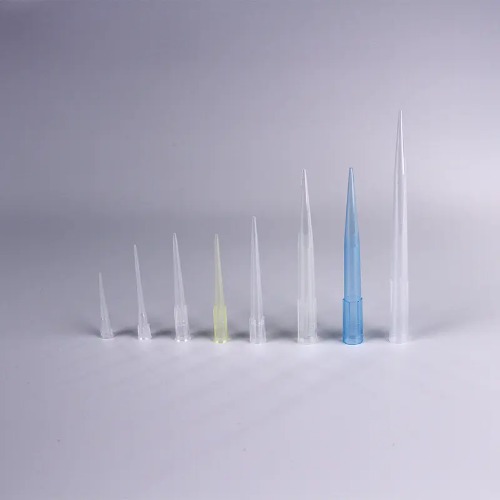Pipette tips are indispensable tools in laboratories worldwide, fundamental to ensuring precision in tasks ranging from simple liquid transfers to complex experimental procedures. However, their often-overlooked role in determining experimental accuracy and reproducibility cannot be overstated. This blog explores the critical aspects of pipette tips, their quality, and their correct usage that collectively ensure reliable outcomes in scientific studies. Along the way, we'll also provide practical insights into addressing common pipetting challenges and emphasize how informed choices in pipette tips directly impact your results.
Table of contents:
How Pipette Tip Quality Affects Experimental Outcomes
The Significance of Proper Tip Installation and Usage
Troubleshooting Common Issues with Pipette Tips
Training Lab Personnel on Best Pipetting Practices
The quality of pipette tips plays a pivotal role in laboratory precision and accuracy. Poorly manufactured or substandard tips can introduce significant errors, such as inconsistent volume delivery due to discrepancies in interior surface smoothness, uneven tip shapes, or low-quality materials. A high-quality pipette tip ensures consistent liquid retention and precise volume transfer, directly influencing the accuracy of experiments. Filter pipette tips, for instance, offer contamination prevention by blocking aerosols and liquid overflows, making them indispensable in sensitive applications like molecular biology or forensic analysis. Leading pipette tips manufacturer and pipette tips supplier prioritize the use of medical-grade plastics, ensuring DNase- and RNase-free designs that meet stringent quality standards.

Proper installation and correct usage of pipette tips are vital practices that guarantee the accuracy of experimental procedures. Incorrect attachment of tips often leads to air gaps, resulting in imprecise liquid measurement and transfer. To avoid this, always ensure that the tip is securely attached by gently pressing it onto the pipette until it fits snugly. Additionally, pipetting at an optimal angle (generally between 10° to 45°) minimizes the chance of sample inconsistencies. Upgrading to high-quality tips supplied by trusted pipette tips manufacturers such as Rongda Bio can further reduce the risks associated with installation errors, as these suppliers ensure compatibility with a wide range of standard manual and electronic pipettes.
Despite their seemingly simple design, pipette tips can present challenges that compromise lab results if not correctly addressed. One common issue is tip contamination, which can easily lead to cross-sample contamination during experiments. Switching to filter pipette tips effectively mitigates this problem by acting as a barrier against aerosols and liquid splashes. Another common concern is inconsistent pipetting techniques, often caused by varying speed and pressure during aspiration and dispensing. Training lab personnel to maintain consistent plunger force and speed ensures smoother and more reliable results. For laboratories handling highly viscous liquids, low-adsorption pipette tips help minimize sample retention on the tip's surface, thereby increasing pipetting efficiency. Collaborating with a reputable pipette tips supplier guarantees access to a range of specialized tips tailored to laboratory needs.
Investing in staff training on proper pipetting practices is as essential as investing in quality equipment. A well-trained team significantly reduces human error in laboratory procedures. Comprehensive training programs should emphasize pipette calibration and proper handling techniques, such as pipetting in a steady, vertical motion and performing pre-rinsing steps to ensure consistency. Regular training sessions not only familiarize team members with advancements in pipette technology but also enhance their confidence in using advanced pipette tips, including filter pipette tips and low-adsorption variants. Partnering with a reliable pipette tips supplier like Zhejiang Rongda Biotechnology ensures access to high-quality certified products, making the adoption of best practices all the more effective.
The inherent quality and proper use of pipette tips are fundamental to achieving high standards in laboratory research and diagnostics. From selecting tips crafted by trusted pipette tips manufacturers to emphasizing proper installation and addressing common issues, every detail contributes to reproducible and accurate results. Zhejiang Rongda Biotechnology Co., Ltd., a leading pipette tips supplier, exemplifies this focus on quality through its comprehensive range of pipette tips, including the AMNGENT series. These tips are crafted with medical-grade materials, are DNase- and RNase-free, and are compatible with most standard pipettes. The inclusion of filter pipette tips further elevates precision by adding layers of contamination control, making Rongda Bio a go-to partner for laboratories aiming for excellence. By prioritizing quality and providing ongoing training, laboratories can cultivate a culture of precision and reliability. This, in turn, drives meaningful scientific discoveries and innovations.